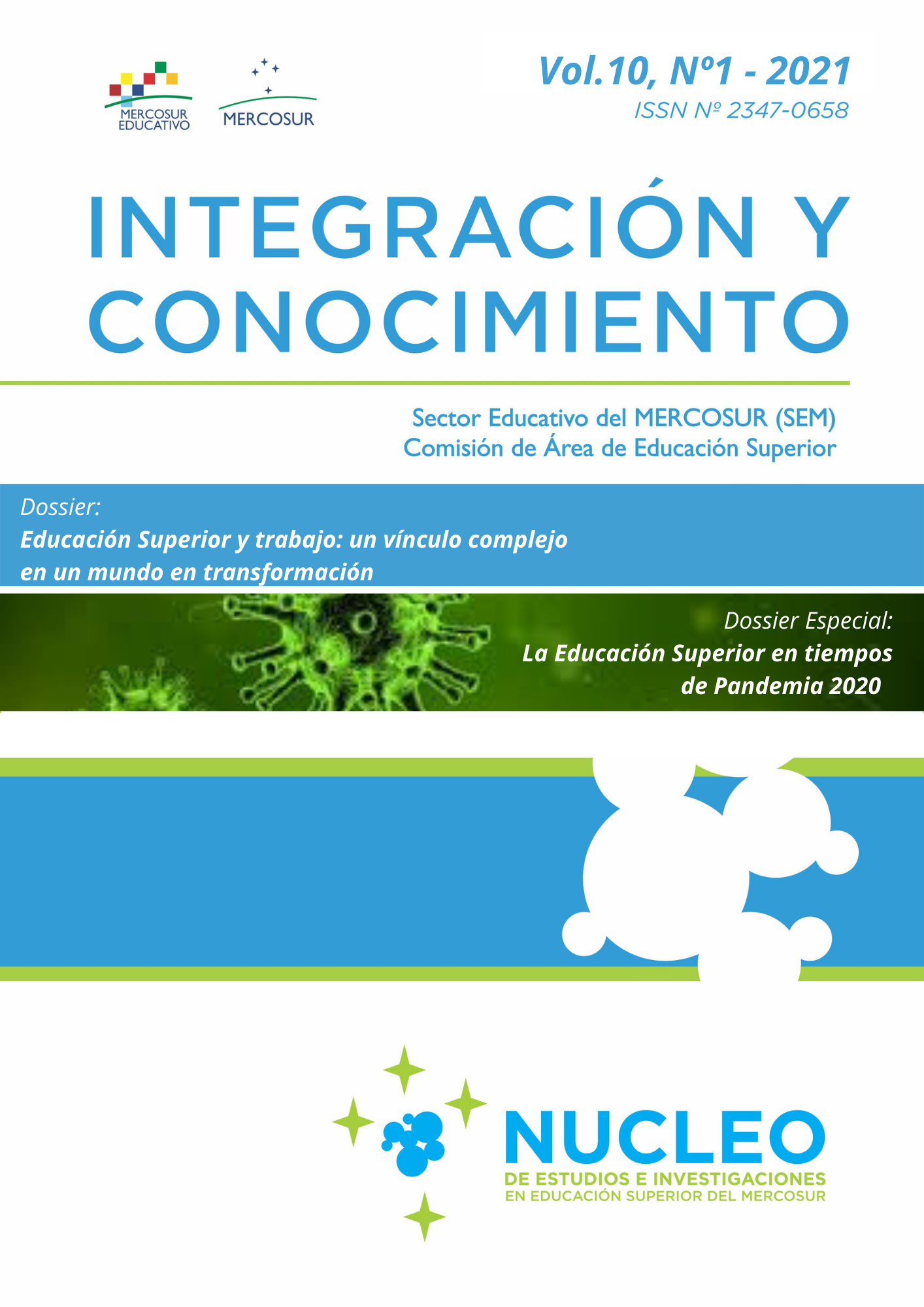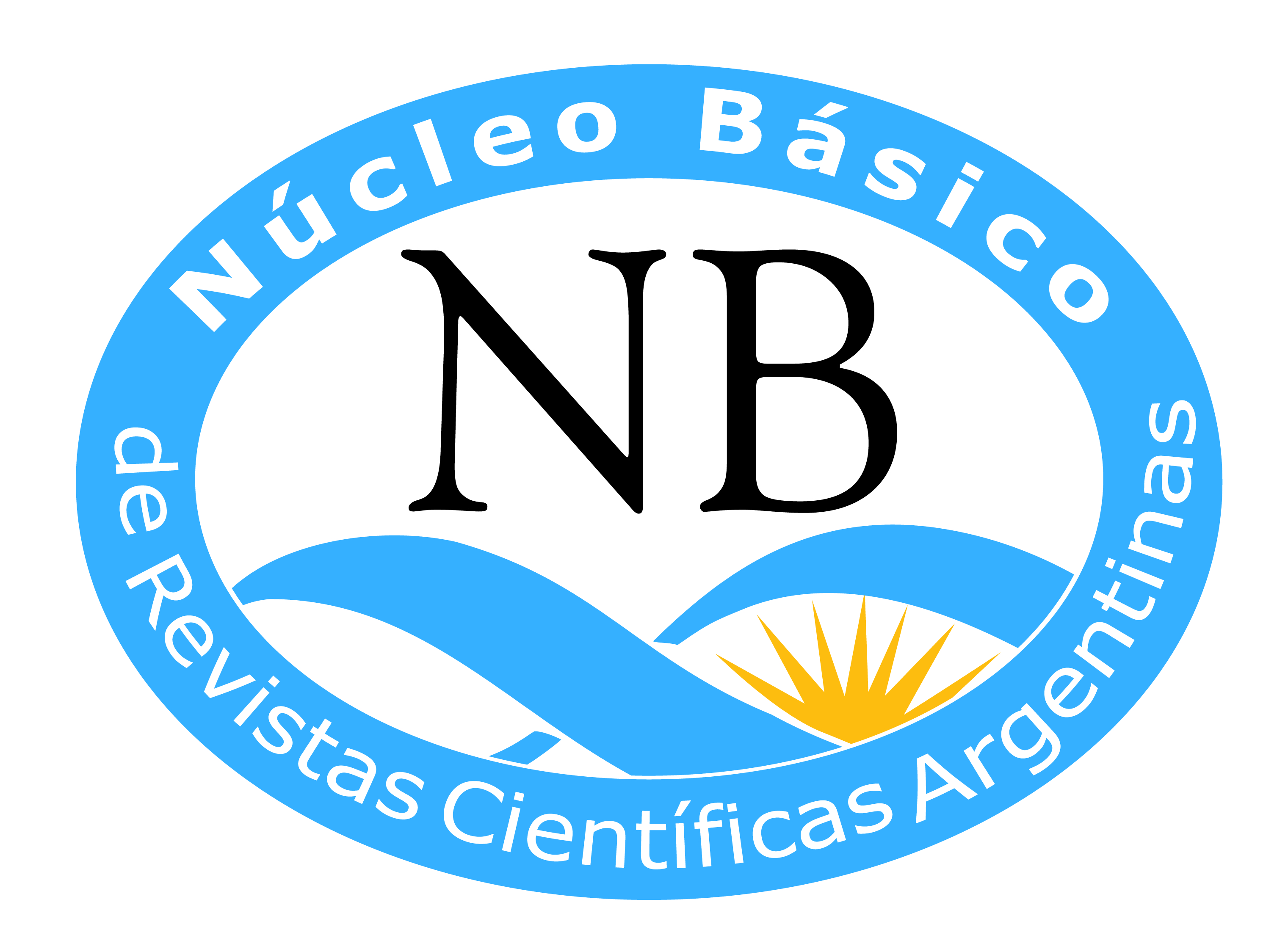AN EXPERIENCE TEACHING QUALITATIVE RESEARCH IN PSYCHOLOGY
DOI:
https://doi.org/10.61203/2347-0658.v10.n1.31978Keywords:
qualitative methodology, research, teachingAbstract
The article addresses some of the transformations that have taken place in the didactic and pedagogical proposal of the course Qualitative Methodology from the BA in Psychology from Universidad de la República (Uruguay). The reflection and review processes that the interdisciplinary educational team has been carrying out on the teaching proposal, have tried to articulate instruction and research. By discussing teaching practices, the team reconfigures classroom instruction, in a context of large student numbers typical of public universities with free access. This implies rethinking teaching practices in the classroom, in their situated reality. Permanent revision and analysis of such practices try to provide consistency and coherence between the principles and the characteristics of the theoretical and epistemological literature of qualitative research, with the instruction and evaluation devices. The reflection on the practice of teaching research problematizes the relationship of subjects with knowledge, teacher surprise with what happens, what emerges in the classroom. And from there on, in the classroom, we try to act in between the provocation to think, the promotion of reflection and the wish to investigate, the transmission of knowledge and the co-construction of knowledge. A between that does not limit teaching to a unique way of acting in the classroom from university teaching. The exchange points to the problematization and articulation of teaching and the qualitative look in research.
Downloads
References
Araújo, A. (coord.). (2019). Sociología Clínica desde el Sur. Teoría-Praxis. Montevideo: Psicolibros Universitario.
Arendt, Hannah. (1974). Los orígenes del totalitarismo. Madrid: Taurus.
Barriga, O. A. (2000). El actor social que hace investigación. Reflexiones en torno a la enseñanza de la metodología. Revista Venezolana de Economía y Ciencias Sociales, 6 (2,) 27-35.
Charlot, B. (2008). La relación con el saber, formación de maestros y profesores, educación y globalización. Montevideo: Trilce.
Cifali, M. (1995). Transmisión de la experiencia, entre palabra y escritura. Conferencia ofrecida en la Universidad de Verano, Nº 101, “El análisis de las prácticas en vista a la transferencia de los logros”. Universidad Costa Azul, Saint Jean D’Angely.
Contreras, J y Pérez de Lara (2010). Investigar la experiencia educativa. Ediciones Morata: Madrid.
De Gaulejac, V. e Yzaguirre, F. (2018). Sociología Clínica y emancipación del sujeto. En J. Estramiana (coord.) La interacción social. Escritos en homenaje a José Ramón Torregrosa (pp. 251-270). Madrid: Centro de Investigaciones Sociológicas José Ramón Torregrosa.
Devereux, G. (1979). De la ansiedad al método en las ciencias del comportamiento. México: Siglo XXI.
Dirección General de Planeamiento, Universidad de la República. (2018). Síntesis Estadística por Servicio Universitario. Facultad de Psicología. Recuperado de http://gestion.udelar.edu.uy/planeamiento/wp-content/uploads/sites/33/2019/01/Psico
log%C3%ADa_2018.pdf
Gatti, E. y Kachinovsky, A. (2005). Entre el placer de enseñar y el deseo de aprender. Historias del aula universitaria. Montevideo: Psicolibros Waslala.
Guber, R. (2001). La etnografía. Método, campo y reflexividad. Bogotá: Norma.
Hart, R. (1993). La participación de los niños. De la participación simbólica a la participación auténtica. Ensayos Innocenti N°4. Florencia: International Child Development Centre.
Instituto Interamericano del niño, la niña y adolescentes. (2010). Menú de Indicadores y Sistema de Monitoreo del Derecho a la Participación de Niños, Niñas y Adolescentes. Disponible en
http://www.iin.oea.org/pdf-iin/Menu_Indicadores_y_sistema_monitoreo.pdf
Ley Orgánica de la Universidad de la República. Recuperado de https://www.google.com/search?q=ley+organica+udelar&oq=ley+organica+udel&aqs=chrome.1.69i57j0.9834j0j7&sourceid=chrome&ie=UTF-8
Meirieu, Ph. (1992). Aprender sí. Pero ¿cómo? Barcelona: Octaedro.
Olaza, M. (2019). Historia e historicidad de experiencias racistas en Uruguay. En A. Araújo (coord.), Sociología Clínica desde el Sur. Teoría-Praxis (pp.185-198). Montevideo: Psicolibros Universitario.
Pereda, C. (2017). Dinámica áulica en torno a los mitos en la investigación cualitativa. Mimeo. Montevideo: Instituto de Psicología, Educación y Desarrollo Humano de la Facultad de Psicología, Udelar.
Phélan, M. (2018). Cinco desafíos contemporáneos sobre la enseñanza de la metodología en las ciencias sociales en Venezuela y en Latinoamérica. En A. Reyes; J. I. Piovani y E. Potaschner (Coord.), La investigación social y su práctica. Aportes latinoamericanos a los debates metodológicos de las ciencias sociales (pp. 187- 208). Buenos Aires: Teseo.
Plan de Estudio de la Licenciatura en Psicología https://psico.edu.uy/ensenanza/plan
Potaschner, E. (Coord.). (2018). La investigación social y su práctica. Aportes latinoamericanos a los debates metodológicos de las ciencias sociales. Buenos Aires:
Ruiz Barbot, M. (2016). Los estudiantes, los sentidos de la formación universitaria. Revista Intercambios, 5 (1), 60-69. https://ojs.intercambios.cse.udelar.edu.uy/index.php/ic/article/view/148
Ruiz Barbot, M.; Barceló, J.; Gatti, E.; Maestro, C.; Píriz, S y Weisz, B. (2014). La educación media uruguaya: las demandas al sistema educativo formal. Montevideo: Instituto Nacional de Evaluación Educativa.
Skliar, C, y Larrosa, J. (2009). Experiencia y alteridad en educación. Rosario: HomoSapiens.
Sisto, V. (2008). La investigación como una aventura de una producción dialógica: La relación con el otro y los criterios de validación de la metodología cualitativa contemporánea. Psicoperspectivas VII, 114-136. Recuperado de http://www.psicoperspectivas.cl/index.php/psicoperspectivas/article/view/54
Tortosa, J. M. (2012). Desigualdad, conflicto, violencia. Cinco ensayos sobre la realidad mundial. Ecuador: PYDLOS, Universidad de Cuenca.
Valencia, G. (2018). La formación en investigación. Enseñanza y más. En A. Reyes, J.I. Piovani y E. Potaschner (Coord.), La investigación social y su práctica. Aportes latinoamericanos a los debates metodológicos de las ciencias sociales (pp. 209-226). Buenos Aires: Teseo.
Weisz, C. y Ruiz, M. (2019). El proyecto parental y la construcción de sentidos de la educación. En A. Araújo (Coord.), Sociología Clínica desde el Sur. Teoría-Praxis (pp. 77-95). Montevideo: Psicolibros Universitario.
Weisz, C. y Blanco, R. (2018). El derecho a la participación de niños, niñas y adolescentes. Estudio de Caso: El devenir del CAC 2009-2017. Resumen ejecutivo. En Avances y desafíos de los consejos consultivos de niños, niñas y adolescentes en la región. Montevideo: PROPIA/INAU
Zavala, A. (2006). Escribir las prácticas, ¡qué difícil! En A. Zavala y M. Scotti (Comp.), Yo enseño historia, ¿y usted? Una aventura hecha palabras (pp. 9-20). Montevideo: A.P.H.U-CLAEH.
Downloads
Published
Issue
Section
License

This work is licensed under a Creative Commons Attribution-NonCommercial-ShareAlike 4.0 International License.
Authors who have publications with this journal accept the following terms:
a. Authors shall retain their copyright and guarantee the journal the right of first publication of their work, which shall simultaneously be subject to the Creative Commons License of Recognition which allows third parties to share the work as long as its author is indicated and its first publication is this journal.
b. Authors may adopt other non-exclusive licensing agreements for the distribution of the published version of the work (e.g., depositing it in an institutional telematic archive or publishing it in a monographic volume) provided that the initial publication in this journal is indicated.
c. Authors are allowed and encouraged to disseminate their work via the Internet (e.g. in institutional telematic archives or on their website) after publication of the article, which may lead to interesting exchanges and increased citations of the published work. (See The Effect of Open Access).



